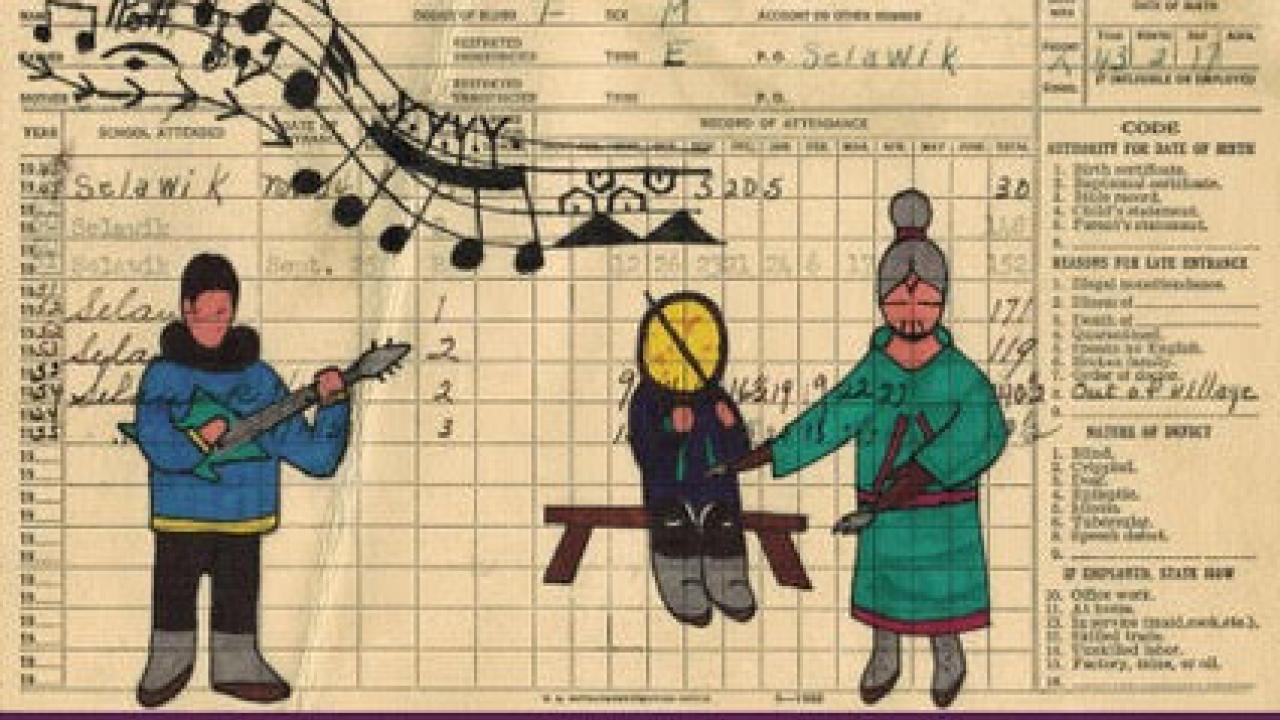
Music and Indigenous Relationality with Dr. Jessica Bissett Perea
In the DHI’s February 23rd Book Chat, Dr. Jessica Bissett Perea (Dena’ina), Associate Professor of Native American Studies, and Dr. Stephanie Maroney, Mellon Public Scholars Program Manager at the DHI, discussed Perea’s new book, Sound Relations: Native Ways of Doing Music History in Alaska. The book explores the Inuit music culture in Alaska to illustrate how sound is integral to Native revitalization and self-determination movements.
Sound Relations proposes Native musicking as a way of understanding Native densities. Densities, a term coined by Métis scholar Chris Andersen, in contrast to differences, illustrate the ways in which we relate to the people and places that we live in. Perea practices this kind of relationality in her book and in her own pedagogy—the book chat opened with Perea’s standard classroom introduction in which she highlights the people, places, and projects in her life and how they relate. For Perea, this introduction via densities of relationality is different from introducing oneself via positionality or identity. Focusing on relationality means asking who you are and to whom are you responsible (people), what spaces and places have shaped your thinking (places), and how your project uplifts your people and places (project).
The book embodies that ethos as it explores Inuit music culture in Alaska where Perea grew up (though she is Dena’ina, a registered member of the Knik tribe, she is not Inuit). Personal biographies frame her cultural analyses of the ways Alaska Native music brings together a range of genres from hip hop to Christian hymnody. These personal stories are key, Perea argues, to framing the conversation, because the contexts are specific to Alaska. For example, a “corner store” in the Lower 48 is several miles away in Alaska, never just around the corner. Perea posits that acknowledging who we are and where we come from enables us to have more ethical conversations in our research.
The goal of the research in this book is to musicalize Indigenous Studies and to Indigenize Music Studies. Perea noted that we know so little about music from Indigenous perspectives and very little in music is framed through Native theories and methods. In turn, Native music is not taught alongside Native literature, law, or history. Sound Relations asks us to consider: what does it mean to sound Native? Music can be an important site for the conjunction of Indigeous histories, colonialism, and modernities as Perea demonstrated with a video from Alaskan Inuit band Pamyua. Professor Perea’s other projects include the Radical and Relational Approaches to Fermentation and Food Sovereignty, a DHI Transcollege Research Cluster.
